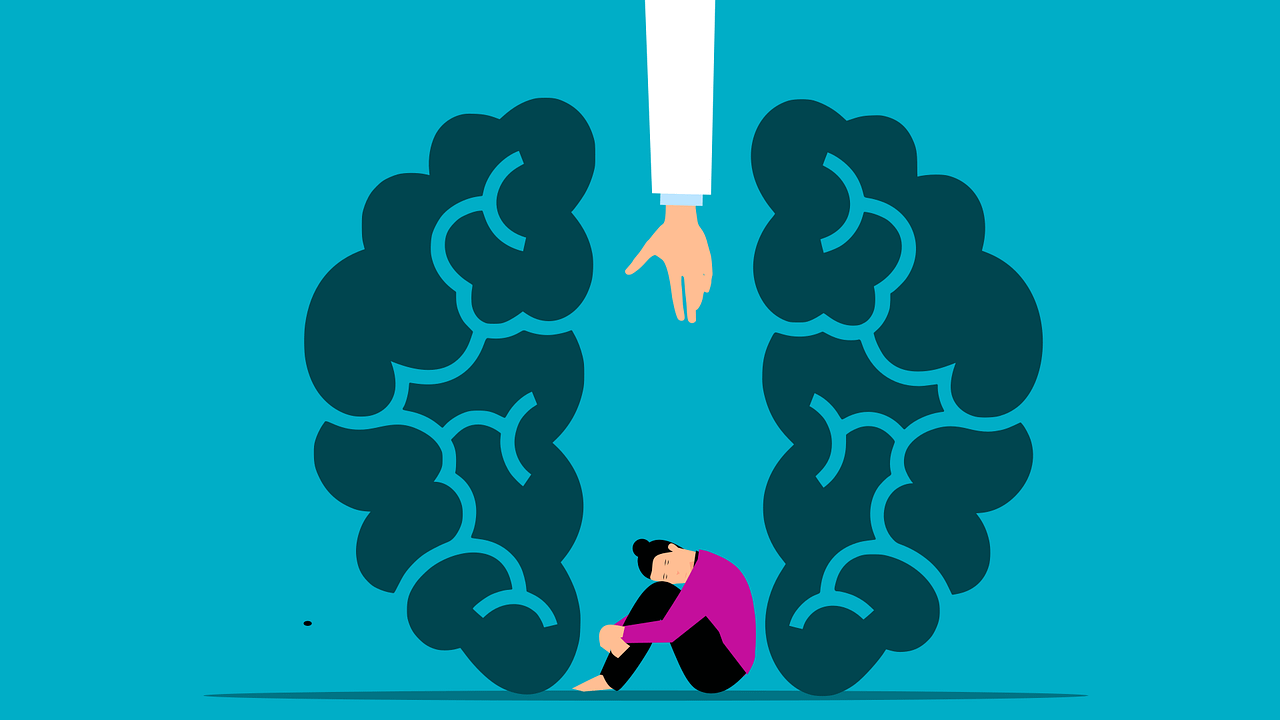If you’re reading this, chances are you’re a college student wondering just how likely it is for you to face burnout. Spoiler alert: it’s more common than you might think. According to the American College Health Association (ACHA), 4 out of 5 college students will experience burnout during their academic journey. This alarming statistic raises the question: what is college burnout, and how can we effectively deal with it?

Every college student is bound to face challenges—upcoming deadlines and exams, social anxiety about fitting in, and seeking employment after college. These challenges can take a toll on any student’s mental health, and the longer they go unaddressed, the heavier they weigh on us. If you have ever felt overwhelmed, exhausted, or detached, you might be experiencing college burnout.
But do not worry—you are not alone, and recovery is possible. In this article, we’ll break down what college burnout is, explore its causes and symptoms, and share practical strategies to overcome it.
Let’s dive right in!
What is college burnout?
As you open your laptop to start working on your English paper due in a few days, the thought of your other assignments creeps in. There is math homework you have not started, an upcoming midterm that demands your attention, and a growing list of to-do’s. The pressure hits hard, and you feel the sting of tears welling up, overwhelmed by how much there is to do with so little time.

The stress and overwhelming hopelessness you feel while juggling school, home, and work responsibilities are key signs of college burnout. It’s the mental, physical, and emotional exhaustion caused by prolonged academic pressure and work-life imbalance. Over time, these emotions build up, leaving you unmotivated and stressed, knowing that no one is coming to save you.
What are the causes and symptoms?
The causes of college burnout vary from student to student but typically stem from a combination of study habits, external pressures, and internal struggles. Common examples include:
- Poor time management
- Procrastination
- Academic pressure from parents or professors
- Fear of failure
- Comparing yourself to others
- Lack of self-care
- Perfectionism
The symptoms of college burnout are most commonly identified as:
- Mental and physical exhaustion
- Difficulty focusing
- Poor academic performance
- Headaches
- Sleeping too much or sleeping too little
- Overeating or eating too little
How to deal with college burnout
Depending on the severity of the burnout you’re experiencing, seeking professional help might be a good step. If you’ve been dealing with burnout for a while, consider contacting your school’s mental health resources for support.
However, if you’re starting to feel overwhelmed and recognize the early signs of burnout, the following steps can help you regain control.

Before diving into these tips, you might find it helpful to explore some general college advice to set yourself up for success. Here are a handful of college advice to help you.
1. Get more sleep
Sleep acts as your body’s natural charging system, replenishing your energy levels so you can tackle the day ahead. Ideally, your energy starts at 100% in the morning, but as the day progresses, it gradually diminishes. For a burnt-out college student, however, your energy might start at only 50%, leaving you drained before the day begins.

Proper sleep is essential for maintaining focus, staying alert, and working effectively. Without adequate rest, it becomes impossible to perform at your best because your brain is not recharged. Getting sufficient sleep each night, whether more or less, set yourself up for a successful day.
2. Take yourself on a solo date
As a college student, it can feel like your plate is overflowing with responsibilities—assignments, exams, friendships, and more—all while navigating adulthood. While managing it all, it’s easy to overlook your hard work and fail to enjoy the fruits of your labor. Every bit of hard work and every victory—no matter how small—deserves recognition and reward.
Treating yourself to a solo date is a great way to prioritize you. It’s a reminder of your worth, a way to cultivate self-love, and an opportunity to recover from stress and burnout while gaining clarity over your emotions.
Here are some solo date ideas to get you started:
- Go watch a movie you’ve been eyeing to watch
- Visit your favorite restaurant
- Take a walk on the beach
- Visit a museum
- Go to a concert of your favorite music artist
3. Schedule a day out of the week for rest
“For in six days the Lord made the heavens and the earth, the sea, and all that is in them, but he rested on the seventh day. Therefore the Lord blessed the Sabbath day and made it holy”
– Exodus 20:11 (NIV)
In this verse, even the God who worked tirelessly to create the beauty we have around us needed a break. He didn’t just rest for 15 minutes or an hour, instead, He rested for a day. If God needed a break from work, that most likely means you also need a break.
Setting aside a day out of the week, whether Sunday or another, and doing nothing but just rest is one of the best strategies to help you deal with college burnout. It allows you to reflect on your progress, strengths, and weaknesses, and see what is and isn’t working amidst your busy and chaotic schedule. But, it’s more importantly a time to recharge and recover from all the stress and challenges you were facing.

Setting aside a day out of the week and devoting it entirely to rest is an effective strategy to help you deal with college burnout. It allows you to reflect on your progress, strengths, and weaknesses and identify what is and isn’t working amid your chaotic schedule. More importantly, it’s an opportunity to recharge and recover from all the stress throughout the week.
4. Learn when to stop and take a break
Research shows that the brain can only engage in focused work for 25 to 90 minutes before demanding a break. Pushing beyond this limit leads to mental fatigue, which diminishes productivity and increases stress, making it harder to stay engaged and perform at your best.

Working hard in everything you do is crucial, but so is listening to your body when it signals the need for rest. We are not robots, and taking breaks is like releasing steam from a pressure cooker—without them, the buildup can lead to an explosive disaster.
Here are some great study techniques that prioritize efficiency and taking breaks:
- Pomodoro technique: work for 25 minutes then take a break for 5 minutes. After completing 4 cycles, a longer break of 25-30 minutes is suggested.
- 52/17 rule: work for 52 minutes and take a 17-minute break.
- Pareto principle (80/20 rule): focus on the 20% of tasks that produce 80% of your results
- Eat that frog: complete your most important and challenging task first thing in the morning
5. Give yourself grace
Experiencing college burnout can be overwhelming, but learning how to deal with college burnout starts with giving yourself grace. During these busy seasons, it’s easy to get caught up in the “What’s next?” and forget to appreciate the “What have I achieved?”
As humans, it can be easy to show kindness to others but forget to extend that same compassion to ourselves. Especially as college students, we place immense pressure on ourselves to succeed, constantly questioning if we’re doing enough. Yet, even the minuscule victories—like simply making it through the day when it feels impossible—are more than enough.

Giving yourself grace means being patient and kind, even during the toughest challenges. As Karley Z.M. from NBTS puts it, “I think about how I would treat a friend in a similar situation, and I try to care for myself the same way.” Sometimes, it is about accepting your emotions and recognizing that you will not always be as productive as you would like, which does not correlate to failure.
6. Make time to unwind at the end of every night
Succeeding in college consists of finding the right balance between school, fun, and life. Working too much can lead to burnout, but too much fun can cause your grades to slip. Success isn’t about working nonstop; it’s about creating a rhythm that allows your brain to recharge, allowing you to perform at your best.
The more work you do without giving yourself time for self-care or leisure, the more likely your brain will burn out. Like a car, if we keep going without taking breaks, we’ll eventually run out of gas and break down.

Every college student should have an unwinding routine at the end of each day to help transition the brain into a calm state. Doing so allows your mind to release stress, which improves sleep quality and replenishes energy levels for the next day.
Here are some ideas for you to implement into your unwinding routine:
- Take a warm bath or shower
- Read a book or listen to a podcast
- Reduce stimulants, including phones, TVs, and caffeine
- Engage in light stretching or exercise
- Sip on caffeine-free tea like chamomile
7. Eliminate the unnecessary
As a college student, it’s easy to become fixated on achieving more or pursuing something that doesn’t truly excite us. We take on new responsibilities or choose a major based on external pressure rather than following our passions and aspirations.
The more we take on responsibilities or continue pursuing a career that doesn’t interest us, the more we expose ourselves to unnecessary stress. Over time, these stressors build up, leading to burnout.

As a result, the best way for us to eliminate the unnecessary include:
- Identify what matters and doesn’t matter
- List your tasks and responsibilities from most important to least important
- Spend more time on more important tasks
- Find other major options at your school that are interesting to you
- Identify what you like and dislike
Conclusion
The deadlines, upcoming due dates, and assignments can quickly pile up for any college student. When this happens, the stress and anxiety from these can lead to burnout. Indicators such as poor sleeping habits, poor diet, and lack of motivation point to us experiencing burnout.
Knowing how to deal with college burnout revolves around changes in our habits and taking the time to care for ourselves. Everything from getting the proper amount of sleep, taking breaks, and unwinding at the end of the day will pay off and help reverse the destructive effects of burnout.
If you find yourself still struggling mentally in college, consider following these tips.


